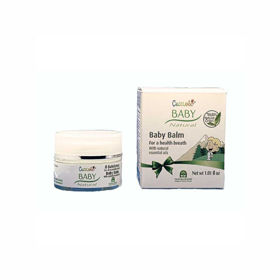Customer question:
How is bacterial pneumonia treated? Anonymous customer's question
Pharmacist's answer:
The general approach to treating bacterial pneumonia often includes the following steps:
- Antibiotics: Your doctor will prescribe antibiotics suitable for treating bacterial pneumonia. Empiric antibiotic therapy is usually initiated before culture and sensitivity results are known. Once the results are available, the antibiotic can be adjusted according to the bacteria's sensitivity to the particular drug.
- Rest: Rest is critical to recovery from pneumonia. Get as much rest as you need to feel better, and avoid strenuous activity until your symptoms are gone.
- Treatment of symptoms: Your doctor may also recommend medicines to relieve symptoms such as chest pain, fever, or cough. This may include pain, antipyretics to reduce body temperature, or cough relievers.
- Keeping hydrated: Drinking enough fluids is essential to keeping the body hydrated and to thin the mucus in the lungs, making coughing easier.
- Regular check-ups: Follow your doctor's instructions and see him regularly for further treatment. Switch to oral antibiotics (if appropriate) and monitor your recovery progress.
Sometimes, bacterial pneumonia may require hospitalization, intravenous antibiotic therapy administration, and vital signs monitoring, especially in older adults or people with underlying medical conditions. It is essential to start treatment for bacterial pneumonia as soon as possible and to take it entirely as prescribed by your doctor, even if you feel better, to prevent the infection from recurring or developing severe complications.
Check out more about pneumonia.
Which antibiotics are used to treat bacterial pneumonia?
Different antibiotics can be used to treat bacterial pneumonia, depending on the type of bacteria causing the infection and the severity of the disease. Some of the common antibiotics used to treat bacterial pneumonia are as follows:
- Penicillins: Penicillins, such as amoxicillin, are often the first choice of antibiotics to treat mild to moderate cases of bacterial pneumonia, especially if the cause is Streptococcus pneumoniae.
- Cephalosporins: Cephalosporins such as ceftriaxone, cefotaxime, or cefuroxime may be suitable if penicillins are ineffective or bacterial resistance is suspected.
- Macrolides: Macrolide antibiotics such as azithromycin or clarithromycin can treat bacterial pneumonia, especially if the cause is Mycoplasma pneumoniae or Chlamydophila pneumoniae.
- Fluoroquinolones: Fluoroquinolones such as levofloxacin may be suitable for treating more severe cases of bacterial pneumonia or for people who are allergic to penicillins.
- Aminoglycosides: Aminoglycosides such as gentamicin may be used with other antibiotics to treat more severe cases of pneumonia or in patients at risk of bacterial resistance.
Interesting reading: Is bacterial pneumonia contagious?
Interesting reading: Bacterial pneumonia forum













